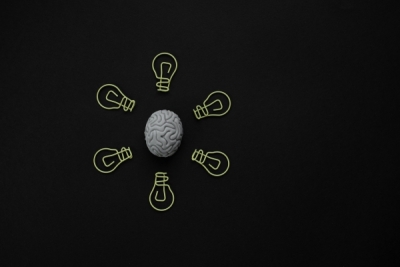Mental health is, according to the World Health Organization, a state of mental well-being that allows people to cope with everyday stress, fulfill their capabilities, learn and work well, and contribute to their community. It is an integral component of general health and a basic human right, crucial for personal, community and socioeconomic development (1). It is known that alcohol consumption can be harmful to an individual's mental health, particularly if they meet the criteria for alcohol use disorder, such as difficulty controlling alcohol consumption, drinking excessive amounts of alcohol on one occasion, or drinking often excessively on most days or weeks (2).
Studies indicate that, among the general population, there are associations between mental disorders such as depression and anxiety, and excessive alcohol consumption (binge drinking) or dependence (3,4). There is also evidence of an association between worsening mental health and increased alcohol use. These findings show that people can be motivated to use alcohol to try to deal with stress, since alcohol acts quickly in the body, promoting states of relaxation. And this can include people with mental disorders, such as anxiety and depression, since alcohol consumption can, in the short term, “alleviate” the perception of symptoms that afflict them at that moment (5), even though alcohol consumption does not actually contribute to remedy such symptoms, and may, on the contrary, worsen them.
A review of the scientific literature showed that people with more prevalent mental disorders, such as depression, anxiety and phobia, are twice as likely to report an alcohol use disorder than people without these disorders (6). One of the hypotheses raised is that, in addition to individuals being motivated to use alcohol to deal with stress, there is a perception that the “benefits of drinking” would be greater than the harms, although this is a mistake. Alcohol can be perceived as a false ally to deal with bad mood and irritability, common symptoms of some mental disorders.
A telephone survey in Finland (7) also reported that excessive alcohol consumption and its consequences are associated with problems such as psychological distress and lack of satisfaction with life. These results refer to both higher and lower social classes. In conclusion, the researchers mention that to protect and promote mental health, it would be best to avoid excessive alcohol consumption or at least restrict it to a maximum of a few occasions per year.
Increased alcohol consumption has also been reported during the COVID-19 pandemic. An American study (8) carried out through online surveys showed that 29% of respondents reported an increase in alcohol consumption, with this increase being reported among people with depressive and anxiety symptoms. Respondents aged 18 to 39 were most likely to report an increase in alcohol use.
There is, therefore, a relationship between the harmful use of alcohol and a series of mental and behavioral disorders, in addition to non-communicable diseases and injuries (9). Therefore, having good eating habits, sleeping well, practicing physical activities, mitigating stress and reducing (or avoiding) alcohol consumption, among other practices related to a healthy lifestyle, provides many benefits for mental and physical health. And remember: if you are suffering from emotional or mental problems at any point in your life, do not hesitate to seek professional support. Take care of your mental health!











